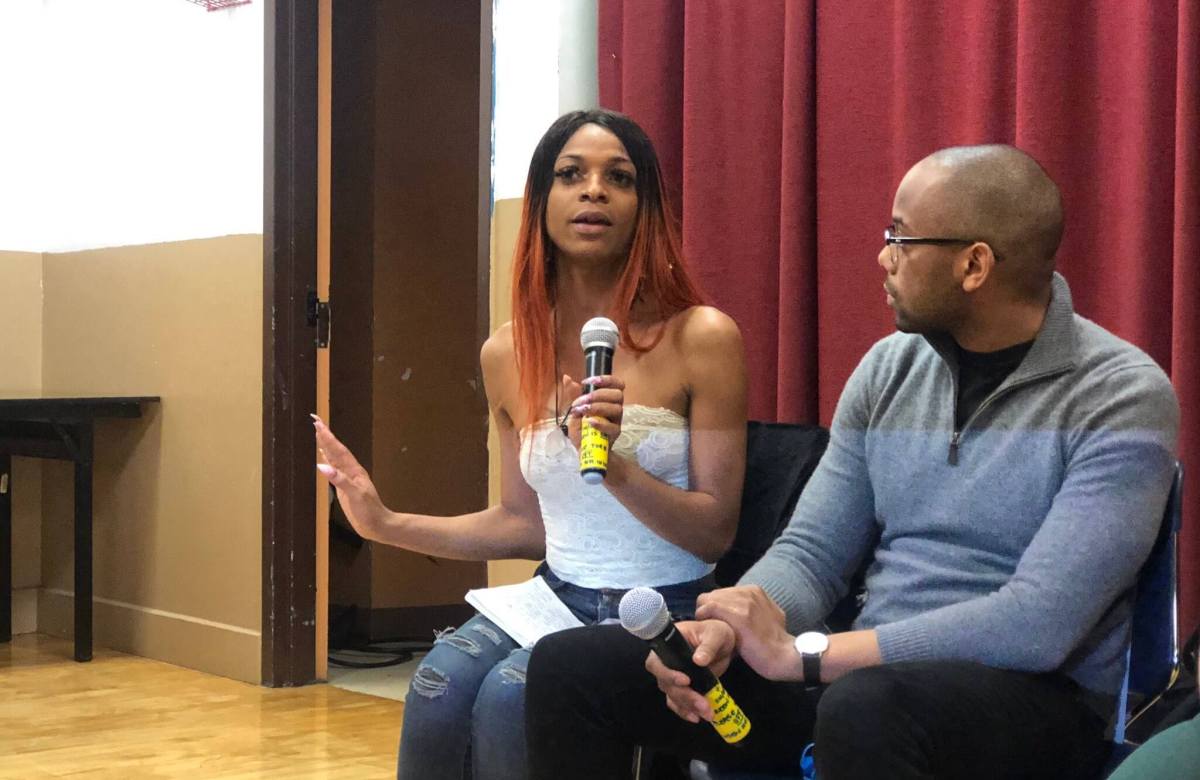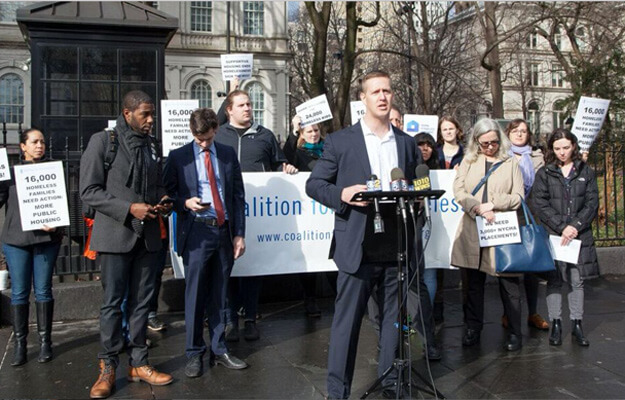The sudden emergence of the coronavirus crisis has left many vulnerable sex workers scrambling to make ends meet in a line of work that relies heavily on in-person services, forcing the workers — many of whom are transgender women of color — to search for emergency housing and employment while much of society has retreated into hibernation.
Sex workers and advocates in New York City, which is now the epicenter of the pandemic, and in the nation’s capital, have faced similar predicaments during the wide-sale shutdown of businesses and non-profits in both cities: A major loss of clients who are keeping their distance due to coronavirus guidelines, the abrupt shuttering of organizations that provided drop-in services sex workers have long utilized, and the exacerbation of shelter needs, among other immediate issues.
“It’s been hard for me because a lot of my clients have sat back during this time,” said TS Candii, a sex worker in New York City who has been on the front lines of the local movement to decriminalize sex work. “You have to imagine the sex worker standing on the corner with masks and gloves… we don’t want to look like we’re sick and have coronavirus.”
Work is just as hard to come by in Washington, where many businesses and service providers are similarly closed for the time being.
“The date list that sex workers tend to rely on are not calling right now,” said Emmelia Ruiz of DC’s No Justice, No Pride, which is a collective of organizers and activists fighting for justice for marginalized trans and queer folks, many of whom are sex workers. “People are experiencing loss of places to work from, and then on top of that there is not really a way to to do intimate sex work while social distancing.”
Candii and Ruiz each stressed the impact of losing access to necessary resources in their respective cities at a time when sex workers need them the most. Candi cited difficulty in obtaining hand sanitizer and the lack of access to condoms since numerous nonprofit organizations have closed and shifted to limited remote offerings, placing massive pressure on the few that remain open. This has been evident at the Ali Forney Center — one of the few providers still open in the city — where, according to executive director Alexander Roque, demand for his organization’s services has increased significantly during the crisis.
There are also concerns that sex workers who reside in hotels will eventually be forced out if those hotels are turned into emergency hospitals as the crisis worsens. Meanwhile, there are sex workers who are currently not fortunate enough to secure a hotel room for shelter and thus cannot abide by the “stay at home” guidelines voiced by government and public health officials.
“A lot of us don’t even have a home, so when you say, ‘go home’ or ‘stay home,’ that is an insult to a lot of homeless individuals,” Candii explained. “I know several trans women whose home is the 46th pier.”
On top of it all, financially-strained sex workers who are managing to find work are getting stiffed in the midst of the crisis. Sex workers explained to Gay City News that they are being forced to accept lower payments than usual, such as $10 for a service that normally would cost $40, as clients use the coronavirus as a negotiating tactic.
Ruiz foreshadowed some potential issues that could arise as the virus continues to tighten its grip on the nation’s most marginalized populations. There are sex workers at heightened risk of contracting coronavirus who have nowhere to quarantine if they get sick, and those who are living with HIV could face even more health risks during the crisis. There are fewer and fewer options for those individuals at this point.
The housing crisis that has grown in the midst of the pandemic was already a precarious one for transgender individuals whose right to shelter has been under attack by the Trump administration’s efforts to allow shelter providers to turn away transgender residents whose gender assigned at birth does match the gender of the facility’s residents. Now, in addition to the existing hostility of the federal government, the community is facing a barrage of needs all at once.
“For Black trans women, we are the last to get any type of resources, any type of safety measures — all the things they want us to utilize for safety precaution? We are the last to get it,” Candii said. “We don’t even have access to be able to go get any other supplies.”
Jared Trujillo, an attorney who is on the steering committee of the DecrimNY coalition to decriminalize sex work in New York, said sex workers are “horrified” right now because they are not only struggling to find work, but also worry about how they will feed and clothe themselves.
“Many sex workers will not qualify for any government stimulus because of their immigration status or other barriers, so they’re truly lost on how they’re going to survive this,” Trujillo said. “Some may have to go to bad former clients to get shelter during this.”
Even during a time of upheaval, advocates have sought ways to stand in solidarity and financially support those in the community. No Justice, No Pride is working to distribute what Ruiz calls microgrants to assist sex workers in the DC area, and she and others created a mutual aid GoFundMe page to fund those microgrants as well as motel rooms and supplies. That GoFundMe has raised $13,055 of the intended target of $27,000.
In New York, Black Youth Project 100, Black Alliance for Just Immigration, and DecrimNY are also rallying financial support through an Act Blue fundraiser for quarantine supplies and other items for those in need. DecrimNY posted a tweet on March 23 stating that in just one week, $32,000 in funding requests came in from Black New Yorkers, particularly Black migrant workers and sex workers. In another fundraiser, the Sex Workers Outreach Project (SWOP) is also raising money through a GoFundMe. That effort has raised $57,628 of the $75,000 goal.
Another organization, BlackTransFutures, created a mutual aid fund for intersex, non-binary, gender non-conforming, and trans people. There is a request form for individuals who would like to apply for help.
While many folks have contributed to the fundraisers, the demand for help will likely continue to escalate in the coming weeks — and there will be a need for more cash flow as time goes on.
“Both funds have raised a lot of money in a short time,” Trujillo said of the New York-based fundraisers. “But there’s only so much they can do.”


































